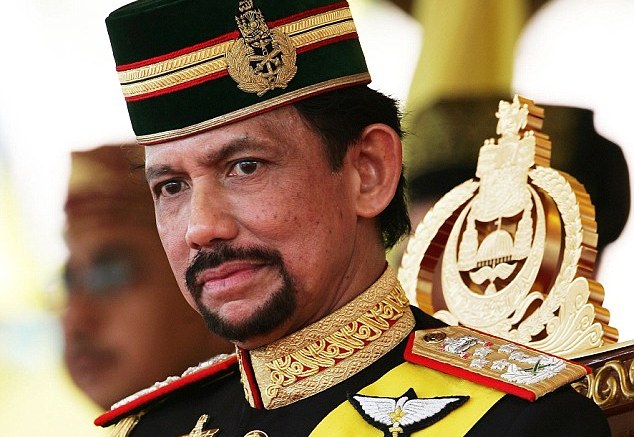Will Brunei become ASEAN’s Greece?
Without oil, there may be little to expect from Brunei’s economy. The nation also risks walking the same destructive path that Greece once took.
By Joelyn Chan
For decades, oil has been an integral part of Brunei’s economy. As with all finite resources, oil will run out eventually. Brunei tries to stay in the game by exploring projects relating to renewable energy. However, things have been getting tough for energy-rich Brunei. The nation struggles with dwindling profits, territorial disputes in the sea and output limits imposed by the Organization of the Petroleum Exporting Countries (OPEC).
Brunei’s restricted oil supply
Projections by various oil companies and research reports differ, but the general consensus is that oil reserves are projected to run out in the next 20 to 30 years. When that happens, Brunei’s economy will take a hit. Oil and gas sector contribution to the country’s gross domestic product (GDP) has already fallen from 63.3% in 2014 to an estimated 50% these days.
According to the press release for International Energy Forum (IEF) 7th Asian Ministerial Energy Roundtable 2017, “Brunei Darussalam remains committed to natural gas production and its customers through continued commitment in rejuvenating its upstream and downstream facilities to ensure reliability of supply to its existing and future customers for the next 30 years.” With such a promise by the government, the worries of depleting oil supply may temporarily disappear. However, future discovery of oil fields remains uncertain due to the territorial disputes in the South China Sea.
Low oil prices and OPEC quota also restricts the oil and gas sector’ growth. Although Brunei is not one of the OPEC nations, it has agreed to extend its promise to reduce supply till March 2018. It is not known whether there will be further extension to the current arrangements. As of November 2017, it has outperformed the other nations and slashed around 5% of its daily oil production. Unfortunately, not all OPEC and non-OPEC nations met their target. Brunei’s oil and gas sector is forecasted to contract further, with a negative growth of 2.8%.

Source: Bloomberg
Bad recipe for trouble
Extravagant spending habits of Bruneians coupled with the nation’s depleting oil situation will accelerate the nation’s fall. In 2016, Brunei’s GDP per capita stands at US$26,939. This makes it second amongst all ASEAN nations. Energy Minister Yahya Begawan Mudim has already warned Bruneians to curb their extravagant lifestyle of wasting energy. The oil rich nation is used to living luxuriously. With GDP per capita falling, it will be harder for the people to maintain their standard of living.
Brunei’s GDP per capita and government debt to GDP trending bear resemblances to Greece. Brunei’s population size is less than 5% of the population in Greece. Thus, the quantum of government debt is lower. Still, the year-on-year jump in debt ratio is similar. According to The Diplomat’s Matthew Prusak, “At the apex of its 2008-2015 financial crisis, Greece’s budget deficit was equal to 15.7 percent of its GDP. For the 2015-2016 fiscal year, Brunei is currently on track to report a fiscal deficit valued at 16 percent of its GDP.” Unless Brunei improves its debt ratio and budget deficit, it may find itself caught in a downward spiral – just like debt-ridden Greece.

Source: World Bank

Source: World Bank
In the name of diversification, Brunei considers Foreign Direct Investment (FDI) and trade
Evident from Brunei’s Vision 2035, the nation aims to achieve “a dynamic and sustainable economy with income per capita within the top nations globally”. However, it must first diversify. With reduced reliance on oil and gas, Brunei’s economy will be less susceptible to changes in oil prices.
Brunei has FDI projects in its pipelines, valued more than US$4.7 billion. Yet, in terms of FDI inflow, it is still the bottom few ASEAN nations. The main source of FDI usually comes in the form of intra-ASEAN investment. If Brunei is not part of ASEAN community, it would have missed out on some FDI projects. To grow further, Brunei can tap on the collective power of ASEAN. Regional economic integration also drives an increase in trade between Brunei and the ASEAN nations.
Unlike Brunei who is still a good contributor to ASEAN’s progress, Greece is the weakest link in Europe. Greece mainly enjoys EU aid, which is equal to about 3.3% of annual GDP. Without EU, Greece will be in a worse condition.
Brunei’s fate is not yet sealed. Oil explorations are still in progress, and industry players are optimistic. Aptly said by Mustafa Izzuddin, a fellow at Singapore’s Iseas-Yusof Ishak Institute, “The oil prices have been a real wake-up call… There are certain pressing issues they (Brunei) have to address. They are not going to collapse any time soon — [but] their natural resources are being depleted.” If the nation corrects its bad spending habit and reduce debt levels, Brunei may be able to avoid a fate like Greece’s. Greece has spent beyond its means, and it is still paying for its bad decisions. Brunei will not gain from following Greece’s footsteps.
Source: https://www.aseantoday.com/2018/01/will-brunei-become-aseans-greece/


 Thailand
Thailand




